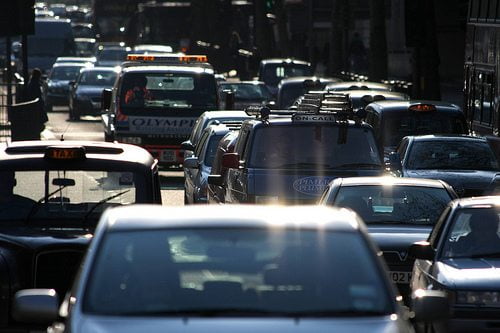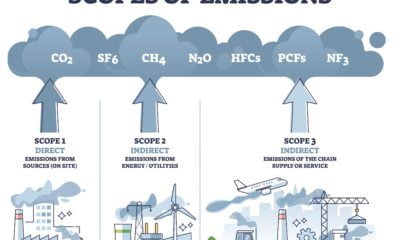

Environment
Air pollution may increase risk of autism
Exposure to air pollution from traffic and power plants in early life may increase the risk of a child developing autism, according to a new study.
In a paper published in the journal Environmental Health Perspectives, researchers from the University of Rochester Medical Centre describe how exposure to pollutants causes an enlargement in a part of a mouse’s brain that is also observed in humans who have autism and schizophrenia.
Young mice were exposed to levels of air pollution that would be found in a mid-sized US city during rush hour.
The scientists found that this caused the mice’s lateral ventricles – chambers on both sides of the brain that contain cerebrospinal fluid – to swell up, causing permanent damage.
“It appears that inflammation had damaged those brain cells and prevented that region of the brain from developing, and the ventricles simply expanded to fill the space,” said study lead author Prof Deborah Cory-Slechta.
As in autism and schizophrenia in humans, the changes seemed to mostly affect males.
After the experiment, the mice performed poorly in tests of short-term memory and learning ability. Their brains also showed unusually high levels of the neurotransmitter glutamate, which is also seen in humans with autism and schizophrenia.
While the causes of autism are not yet known, the new study follows on from several similar projects that have suggested a link to pollution. In 2013, one claimed that children who lived near traffic-clogged areas during their first year of life were three times as likely to develop the condition.
“Our findings add to the growing body of evidence that air pollution may play a role in autism, as well as in other neurodevelopmental disorders,” said Cory-Slechta.
“I think these findings are going to raise new questions about whether the current regulatory standards for air quality are sufficient to protect our children.“
Many more studies have also detailed other negative health impacts of manmade air pollution, including cancer, heart conditions and lung diseases.
In April, Public Health England (PHE) said that air pollution was “the biggest public health risk after smoking”, claiming it contributed to around 29,000 deaths in the UK each year.
Meanwhile, air quality continues to deteriorate in many of the world’s urban centres. In May, the World Health Organisation warned that at least nine UK cities – including London, Birmingham and Leeds – are afflicted by dangerous levels of pollution.
Photo: Garry Knight via Flickr
Further reading:
Climate change coverage: what the BBC can learn from MMR
Study: air pollution affects heart beat
Cutting carbon emissions could boost public health – US study
Study: reducing New York City pollution would make kids smarter and richer
Urban air quality ‘deteriorating’ – with pollution in nine UK cities above safe levels


 Environment12 months ago
Environment12 months agoAre Polymer Banknotes: an Eco-Friendly Trend or a Groundswell?

 Features11 months ago
Features11 months agoEco-Friendly Cryptocurrencies: Sustainable Investment Choices

 Features12 months ago
Features12 months agoEco-Friendly Crypto Traders Must Find the Right Exchange

 Energy11 months ago
Energy11 months agoThe Growing Role of Solar Panels in Ireland’s Energy Future





























